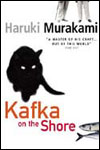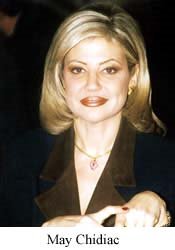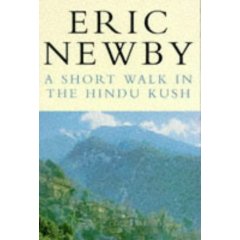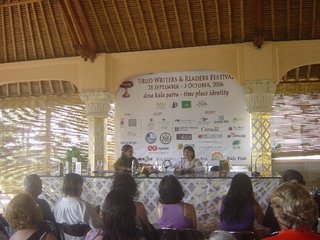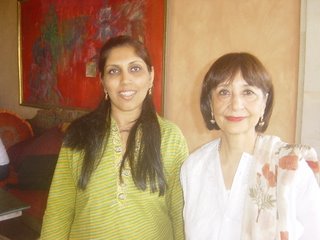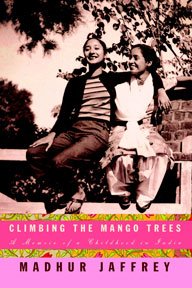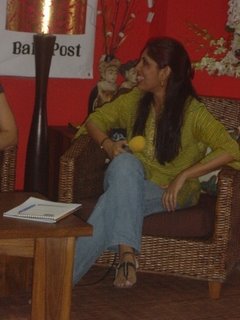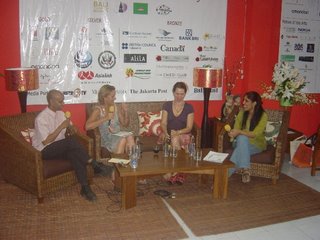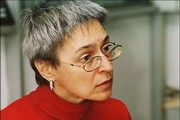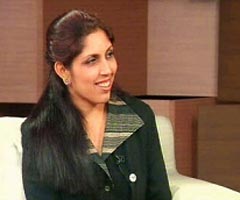Blogging: An Insider's View
Ardent bloggers discuss their blog addiction and speculate whether bloggers will inherit the earth!
MONDAY, 2nd OCTOBER 2006
4-5 pm, Left Bank Lounge, (next to Indus)This was one session that I was tremendously excited about. After all, it was here that I was to come face to face with my blog buddy - Malaysia's star - Sharon Bakar
http://www.thebookaholic.blogspot.com/. It also threw up the opportunity to meet the celebrated Dina Zaman. And then when I saw the final programme schedule, I was heart-broken to see that the bloggers had lost it to books and real authors. A couple of emails to and fro and the lovely festival Director Janet de Neefe kindly agreed to have the bloggers back on. As the days progressed, Jeremy Wagstaff
www.loosewireblog.com, who has been writing a column for The Wall Street Journal and launched his book 'Loose Wire', got added to the list. Having read Shalini Akhil's blogs, I felt it was important to get her on board to get the bloggers of the world to unite. I mean how often, do you see a bona fide author maintain not one, but two blogs?
http://iwriter.blogspot.com/ http://members.ocean.com.au/sakhil/news.htm Shalini does it all with ease. So as we moved towards D-Day, we had an immensely respectable panel of four.
Given the anticipation to get talking, I think all of us forgot to take pictures that we could have presented as proof of all our consequential chatter.
This turned out to be a session where I could do tons of number crunching after three days of spouting all things literary.
It was interesting because blogs have truly gone beyond a passing fancy morphing into a cutting edge phenomenon that is rapidly turning out to be the Internet's 'Next Wave.'
There was a time when I bookmarked pages of news organisations as the prime source of my news. Now, I go straight to the blogs. Take a look at any disaster, any bombing, chances are blogs did it better than the news groups. Part of the reason is the sheer commitment to put out the latest, without making any dubious claims of being the first. That's one thing that truly irks me about some parts of news reportage. In a disaster, please don't tell me you were the first to arrive, first to see and first to beam the pictures live. Tell me what's happening and what's being done to help the victims of the said disaster. That was partly why the blogs that were set up in response to the tragic Mumbai blasts turned out to be such a success.
That's also why one of my favourite blogs -
http://riverbendblog.blogspot.com/ which tracks how the life of a 24 year old Iraqi woman has changed since the American occupation has made waves around the world. If you need more proof of the fact that blogs are changing this world, then take heart in knowing that this blog has been turned into a play, which was most recently showcased at the Edinburgh Festival.
'Baghdad Burning' also won the Best Middle East and Africa blog and received a Bloggie. Then the book based on the blog made it to the short list of the prestigious, British award for non-fiction - the Samuel Johnson Prize.
Take a look at this post for instance, and tell me how it could not have made the leap to an acclaimed book, among other things:
Saturday, March 18, 2006
Three Years...
It has been three years since the beginning of the war that marked the end of Iraq's independence. Three years of occupation and bloodshed. Spring should be about renewal and rebirth. For Iraqis, spring has been about reliving painful memories and preparing for future disasters. In many ways, this year is like 2003 prior to the war when we were stocking up on fuel, water, food and first aid supplies and medications. We're doing it again this year but now we don't discuss what we're stocking up for. Bombs and B-52's are so much easier to face than other possibilities. I don't think anyone imagined three years ago that things could be quite this bad today. The last few weeks have been ridden with tension. I'm so tired of it all- we're all tired. Three years and the electricity is worse than ever. The security situation has gone from bad to worse. The country feels like it's on the brink of chaos once more- but a pre-planned, pre-fabricated chaos being led by religious militias and zealots.Ok, so I'm digressing. When you read text this evocative, its hard to think straight.
Heading back to our panel, some of our blog stars are pretty close to their own books based on their blogs. Sharon, for one, has a standing offer for 'Blook' and when we last spoke, she was seriously toying with the idea.
Apart from 'Blooks' we spoke about several issues, starting with the technologically inclined Jeremy taking us through the nuts and bolts of blogs and blogging and how to get your blog noticed in the increasingly crowded blogosphere?
Crowded it sure is. At last count Blogger.com alone had more than 1 million members, including 200,000 running active blogs. Technorati, the recognized authority on what's going on in the world of weblogs was tracking over 50 million blogs. Given that there are about 1.2 million posts daily or roughly about 50,000 blog updates an hour, what does it take to get noticed?
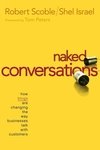
Some of the best tips, I've come across are in celebrity blogger Robert Scoble's book
'Naked Conversations' http://redcouch.typepad.com/. Here are six of the very best:
1. Publishable.2. Findable. Through search engines, people will find blogs by subject, by author, or both. The more you post, the more findable you become.
3. Social. The blogosphere is one big conversation. Through blogs, people with shared interests build relationships unrestricted by geographic borders.
4. Viral. Information often spreads faster through blogs than via a newsservice. No form of viral marketing matches the speed and efficiency of a blog.
5. Syndicatable. By clicking on an icon, you can get free "home delivery" of RSS- enabled blogs into your e-mail software. RSS lets you know when a blog you subscribe to is updated, saving you search time. This process is considerably more efficient than the last- generation method of visiting one page of one web site at a time looking for changes.
6. Linkable. Because each blog can link to all others, every blogger has access to the tens of millions of people who visit the blogosphere every day.
While you do all of that, there are also the recurrent fears of loss of privacy. Dina, who has lived through some pretty scary online moments translating into real like, ran us through some of the pitfalls.
Shalini, who has been sharing her experiences for making it as a writer, told budding authors where and what to look out for among several other things.
It was a whole lot of blogspeak and so much fun - which can be the only probable reason how we collectively missed out on shots of this panel.
Though as a parting shot, I'll leave you with Newsweek's fact-filled piece
'Who's Reading Your Blog?' based on some cool findings from the Pew Internet Project. Here's what they found:
* WHO READS IT: Most of the 12 million American bloggers write for themselves, and their avid readers happen to be their Moms and Dads.
* ALMOST PRO: 84% say blogging is a hobby. And the top 100 bloggers - are almost all journalists or professional writers.
* NOT SO JOURNALISTIC: Nearly 40% of bloggers describe their journals as personal diaries; 65% don't consider their musings journalism at all; 78% are mostly inspired by personal experience.
So, on the bright side, if this survey is to believed, scribes like me will still have their jobs.... a couple of years on... at the very least.
